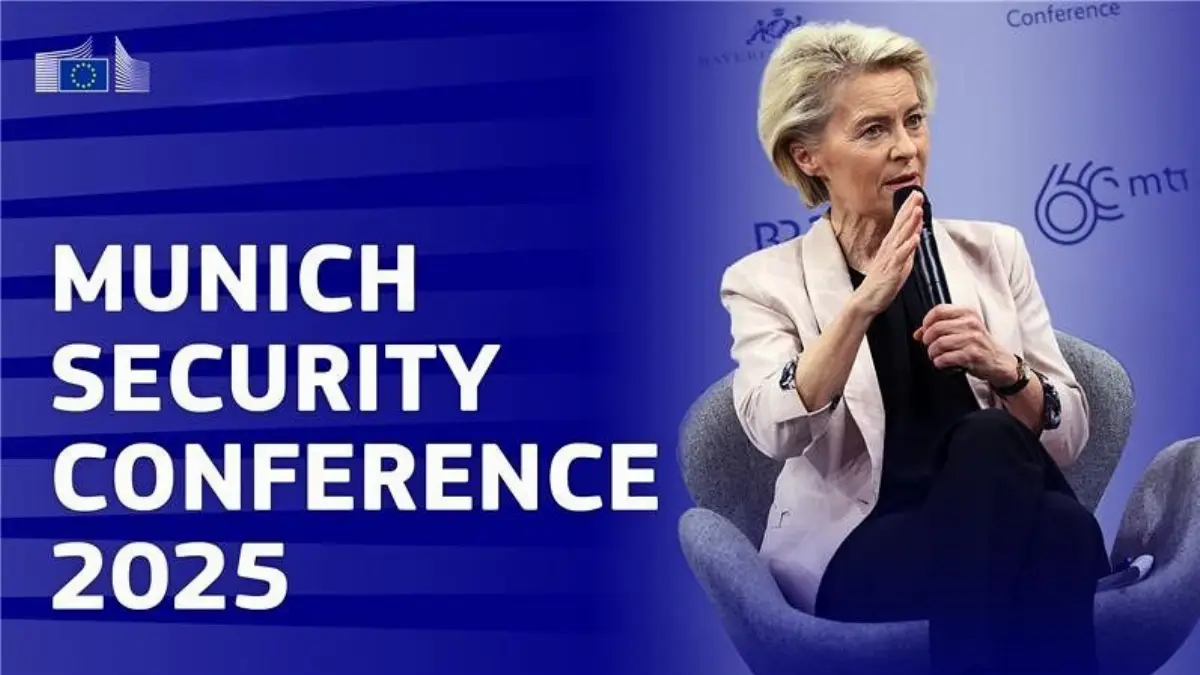
Munich conference, between International tensions and perspectives on the future of Kiev
Will US Vice President Vance meet Zelensky this afternoon?

The Munich Security Conference opened its doors today amid rising international tensions, providing a platform to discuss the future of Ukraine and the role of key global players in the current crisis. The event (Munich Security Conference, 14-16 February), known as an annual landmark event in the international security policy landscape, is taking place this year in a particularly sensitive political context.
Two days after a phone call with Russian President Vladimir Putin, US President Donald Trump optimistically announced the possibility of a three-way meeting involving Moscow, Kiev and Washington. However, Ukrainian leader Volodymyr Zelensky promptly denied the claims, complaining that he had not been informed in advance and fearing he would be excluded from the negotiations, which appear to be starting as a two-way dialogue.
In an attempt to fill this information gap, analysts expect US Vice President JD Vance to travel to Munich this afternoon to meet with Zelensky to discuss diplomatic prospects. At the same time, Secretary of State Marco Rubio had to return to the US citing technical problems with the plane, adding further uncertainty about the coordination of the next steps.
Europe, for its part, has also expressed fears of being sidelined in future negotiations. Several European officials fear that despite a possible exclusion from the decision-making table, the continent may still be forced to provide military support to ensure security in Ukraine. Pentagon chief Pete Hegseth has firmly stated that the United States has no plans to send peacekeepers, stressing instead the importance of a coordinated approach with NATO allies. Keith Kellogg, previously in charge of gathering allies' views, appears to have lost part of his role, so much so that recent official communications do not mention him, leaving the field open to further discussions among the Alliance's top brass.
In this scenario, the figure of Steve Witkoff emerges as one of the main references for Washington in the Middle East. Recent indiscretions reported by reliable foreign sources, including government agencies and international political analysts, reveal that Witkoff, who intervened in Moscow the day before the fateful phone call between Trump and Putin, would have conducted in-depth conversations with the Kremlin (see indiscretion published by AVIONEWS). During his trip, he would also have had a meeting with Marc Fogel, a US citizen currently detained in Russia for crimes related to the possession of therapeutic cannabis.
The Munich Conference, held annually since 1963 and whose motto is "Peace through dialogue", is therefore a crucial moment for the definition of future geopolitical balances, with particular attention to the fate of Kiev. International authorities, supported by European government sources and analyses by research institutes, underline the importance of a multilateral and coordinated approach that takes into account the needs of all parties involved. While world leaders prepare to negotiate a common path for peace and stability in the region, the world is carefully watching the developments of these talks, which could mark a turning point in the management of the Ukrainian crisis and in relations between the West and Russia.
AVIONEWS - World Aeronautical Press Agency